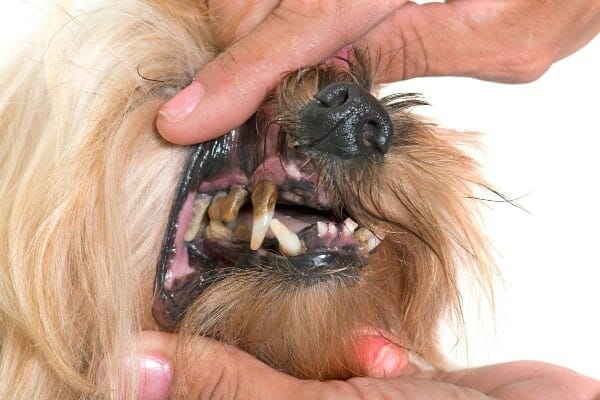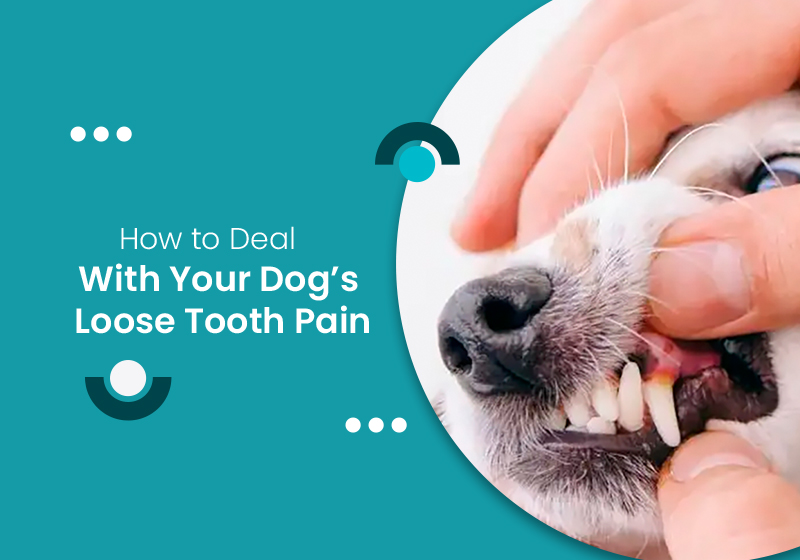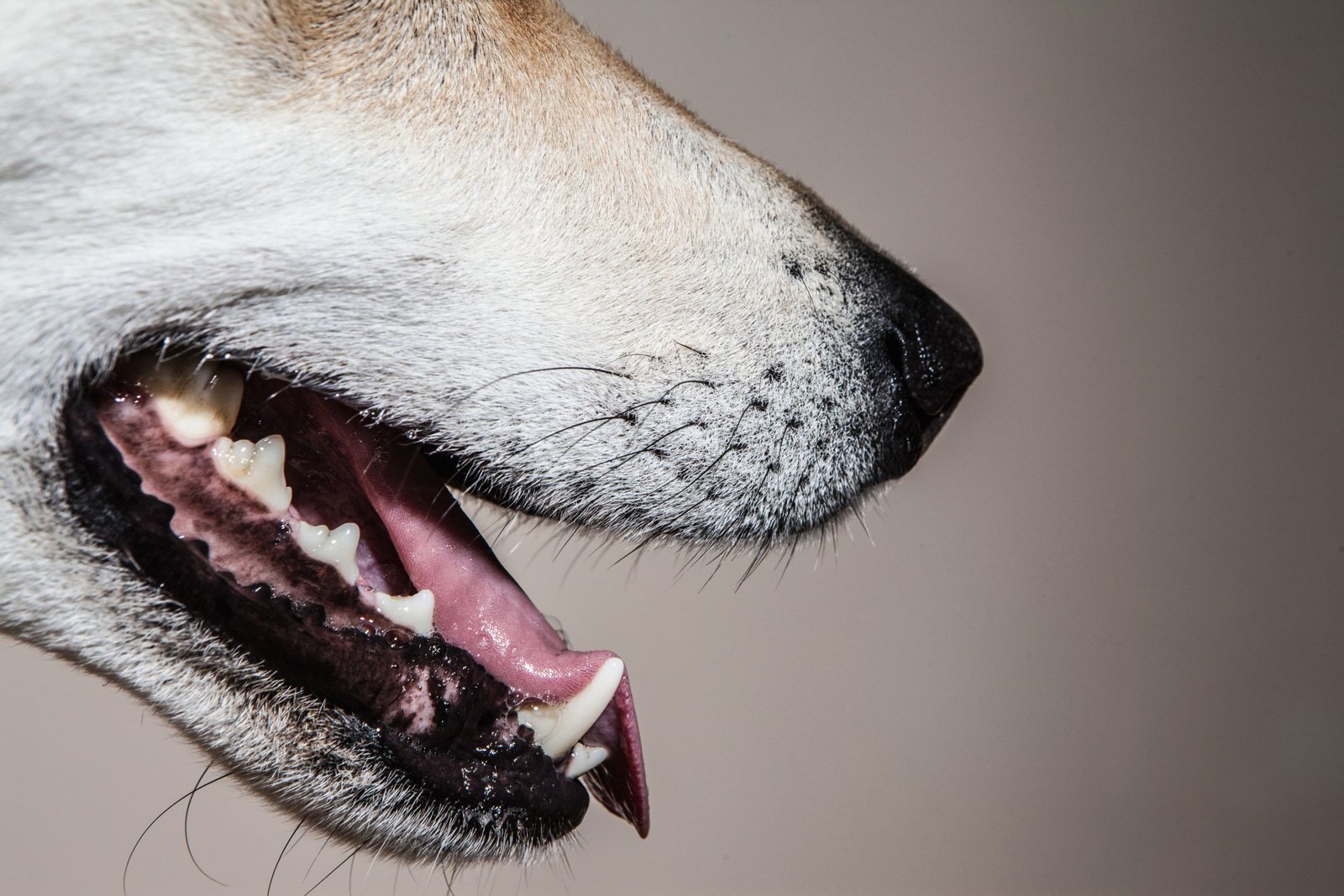If your dog has a loose tooth, it is important to consult with a veterinarian for proper intervention.

Credit: toegrips.com
Causes Of Loose Teeth In Dogs
If your dog has a loose tooth, it is important to seek veterinary intervention as it is not something that will improve on its own or with at-home dental care. Consult with your veterinarian for the appropriate treatment.
When it comes to loose teeth in dogs, there can be several underlying causes that pet owners should be aware of. Understanding these causes can help you take the necessary steps to address the issue and ensure your dog’s dental health.
Periodontal Disease
Periodontal disease is one of the most common causes of loose teeth in dogs. This dental condition occurs when bacteria build up on your dog’s teeth, leading to inflammation and infection in the gums. Over time, the infection can spread to the tooth roots, causing them to become loose.
If left untreated, periodontal disease can have serious consequences for your dog’s oral health. Regular dental care, including brushing your dog’s teeth and scheduling professional dental cleanings, can help prevent the development of periodontal disease and reduce the risk of loose teeth.
Trauma To The Mouth
Another common cause of loose teeth in dogs is trauma to the mouth. This can include accidents, falls, or even rough play with other dogs. When a dog experiences trauma to the mouth, the force can damage the ligaments and support structures that hold the teeth in place, leading to looseness.
If your dog has suffered a mouth injury and you notice loose teeth, it’s essential to seek veterinary attention immediately. The vet can examine your dog’s mouth, assess the extent of the injury, and provide appropriate treatment to prevent further damage.
Overall, whether it’s due to periodontal disease or mouth trauma, loose teeth in dogs should never be ignored. Seeking prompt veterinary care is crucial to ensure your dog’s oral health and overall well-being. By addressing the underlying causes and following your vet’s recommendations, you can help your furry friend maintain a healthy and strong smile.

Credit: www.bestvetcare.com
What To Do If Your Dog Has A Loose Tooth
If your dog has a loose tooth, it is important to seek veterinary intervention. Dental disease or trauma to the mouth can cause loose teeth in dogs, and it is not something that will improve on its own. Consult with your veterinarian for proper treatment and care.
Consulting With A Veterinarian
If you notice that your dog has a loose tooth, it’s crucial to consult with a veterinarian. Attempting to pull out the tooth at home can lead to more harm than good and should be avoided. Only a veterinarian can properly assess the situation and determine the best course of action for your dog’s dental health. They will examine the tooth, evaluate the surrounding gums, and provide guidance on the next steps to take.Possible Tooth Extraction
In some cases, tooth extraction may be necessary if the loose tooth is causing pain or discomfort to your dog. Dental disease or trauma can lead to loose teeth that need to be removed to prevent further complications. During the extraction procedure, the veterinarian will use anesthesia to ensure your dog is comfortable. They will carefully remove the loose tooth and provide appropriate aftercare instructions for the healing process. It’s important to note that not all loose teeth require extraction and the veterinarian will determine the best course of action based on your dog’s specific situation.Preventing Loose Teeth
To prevent loose teeth in dogs, regular dental care is essential. Brushing your dog’s teeth regularly with a dog-friendly toothpaste can help remove plaque and prevent dental disease. Providing your dog with dental chews or toys can also aid in keeping their teeth clean and strong. Additionally, scheduling regular dental check-ups with your veterinarian is crucial for early detection and treatment of dental issues. Taking preventive measures can help maintain your dog’s oral health and minimize the risk of loose teeth in the future. Remember, if you notice that your dog has a loose tooth, consulting with a veterinarian is the first step. They will guide you on the best course of action, which may include tooth extraction if necessary. By prioritizing your dog’s dental health and taking preventive measures, you can ensure that their teeth stay strong and healthy for years to come.
Credit: m.youtube.com
Frequently Asked Questions For What To Do If Your Dog Has A Loose Tooth
Will My Dogs Loose Tooth Fall Out On Its Own?
A loose tooth in dogs requires veterinary intervention and will not improve on its own. Consult with your veterinarian for proper treatment. Trying to pull the tooth at home is not recommended.
Can I Pull Out My Dogs Loose Tooth?
No, you should not pull out your dog’s loose tooth at home. It is a condition that requires veterinary intervention. Consult with your veterinarian if you suspect your dog has a loose tooth.
What Can You Do For A Dog That Loses A Tooth?
When a dog loses a tooth, it is recommended to consult with a veterinarian for intervention. Dental disease and trauma can cause loose teeth in dogs. Pulling a tooth at home is not advised. Extraction or endodontic treatment may be necessary, especially for broken teeth with exposed pulp.
Prompt consultation is key.
Is A Dog Losing A Tooth An Emergency?
A dog losing a tooth is not an emergency, but it shouldn’t be ignored. It’s best to consult with a veterinarian for proper care and treatment to prevent pain, infection, and maintain the dog’s overall health.
Conclusion
If you notice that your dog has a loose tooth, it is essential to seek veterinary intervention. While some dental issues might resolve on their own, a loose tooth requires professional care. Consult with your veterinarian to determine the best course of action for your dog’s dental health.
They will conduct an examination and may recommend extracting the loose tooth under anesthesia. Taking prompt action will help ensure your dog’s overall well-being and prevent potential pain or infection. Trust your veterinarian to provide the necessary treatment for your furry friend’s dental needs.

